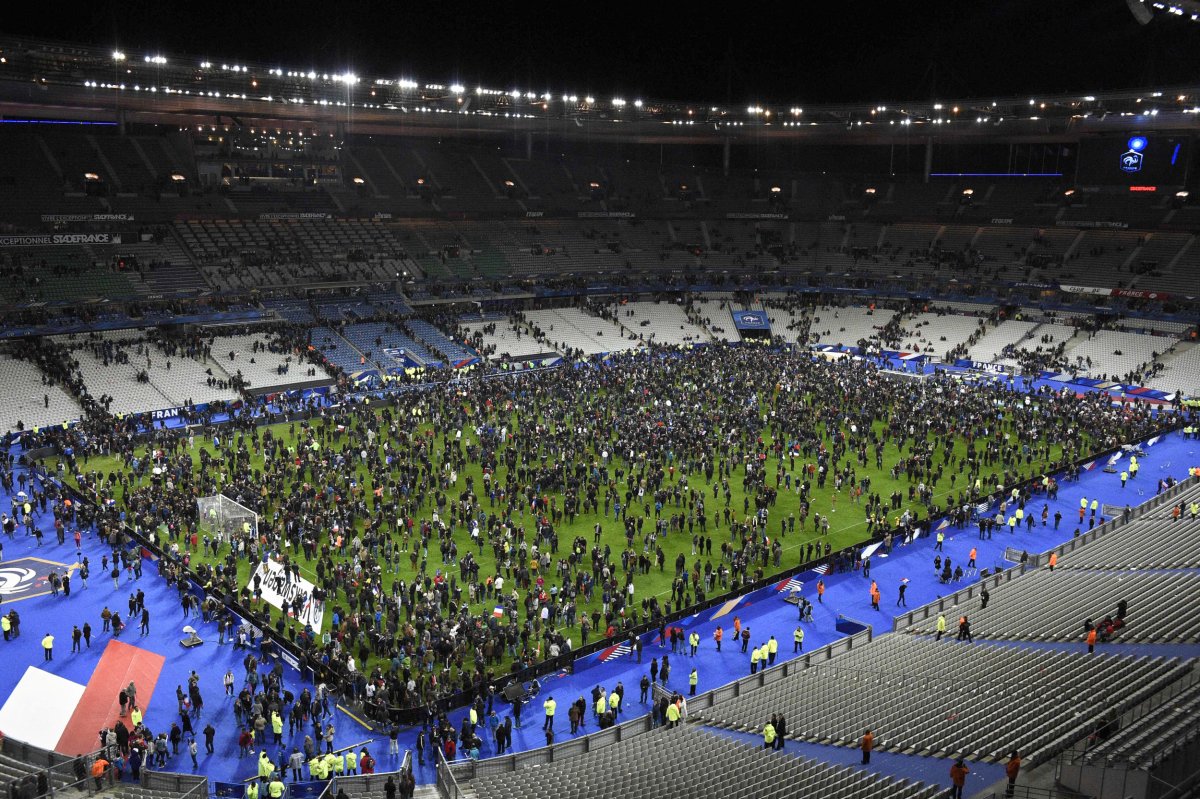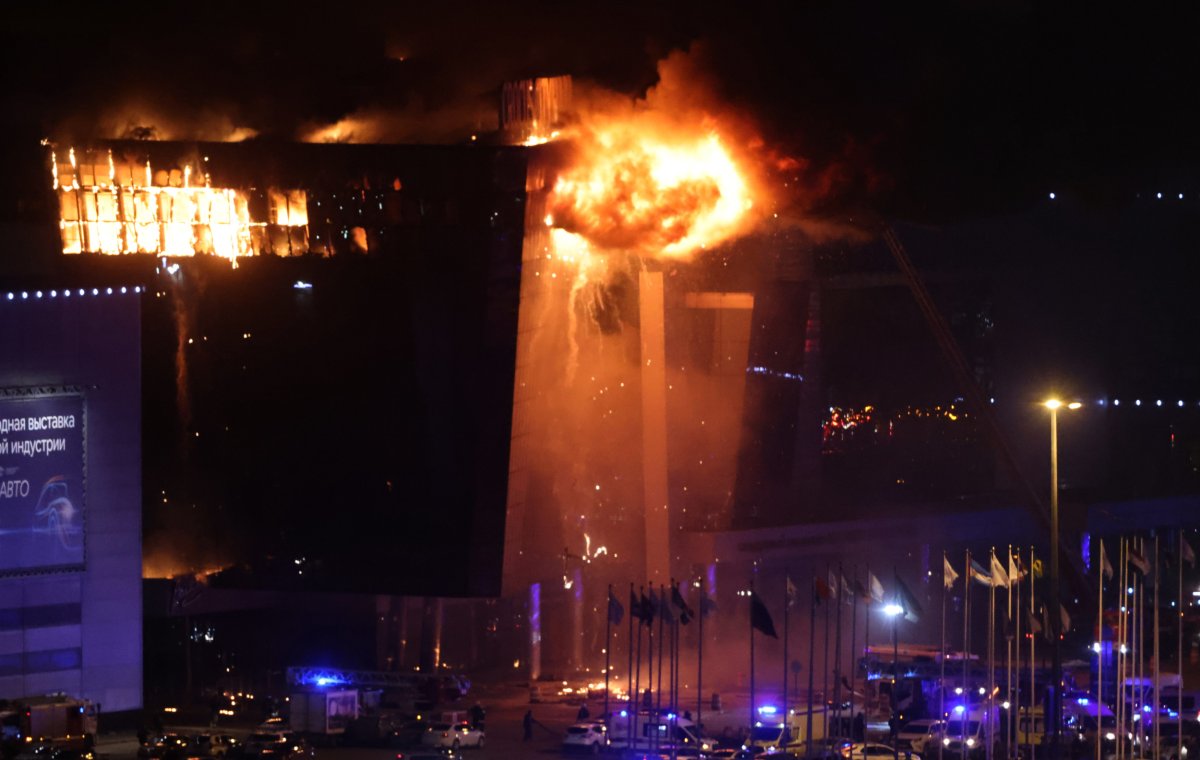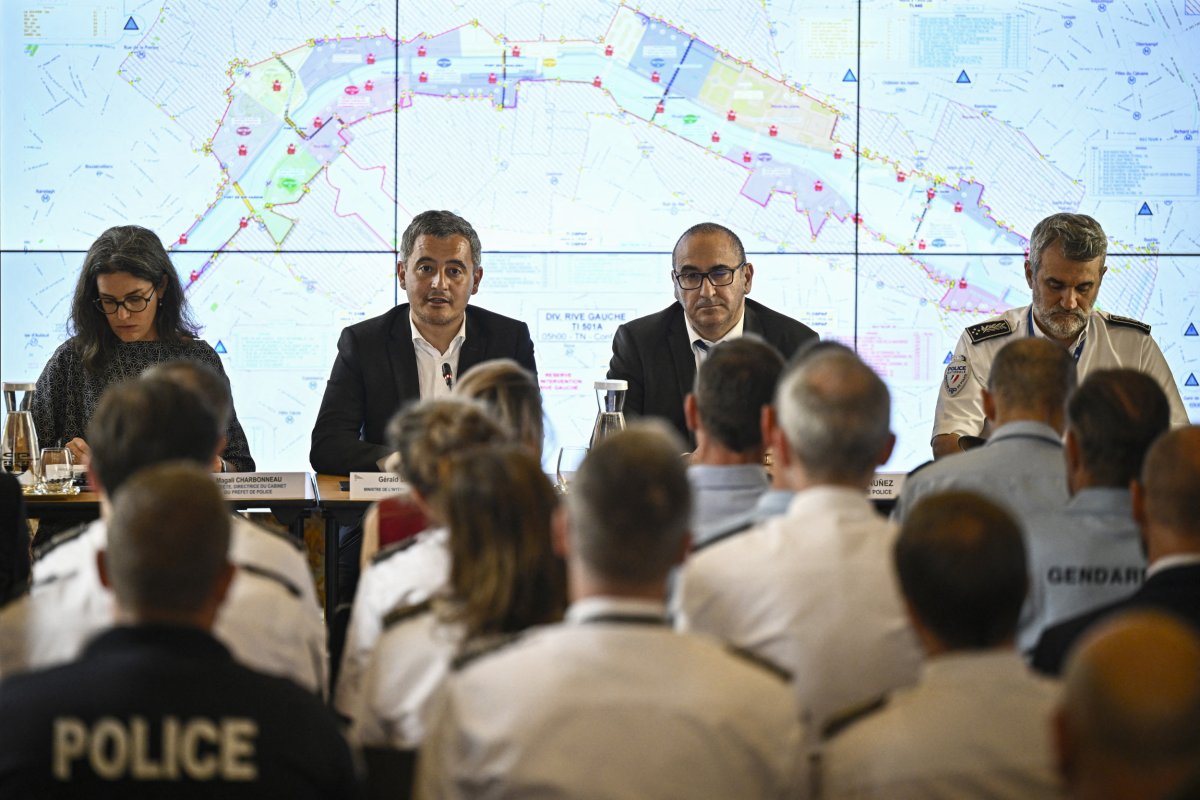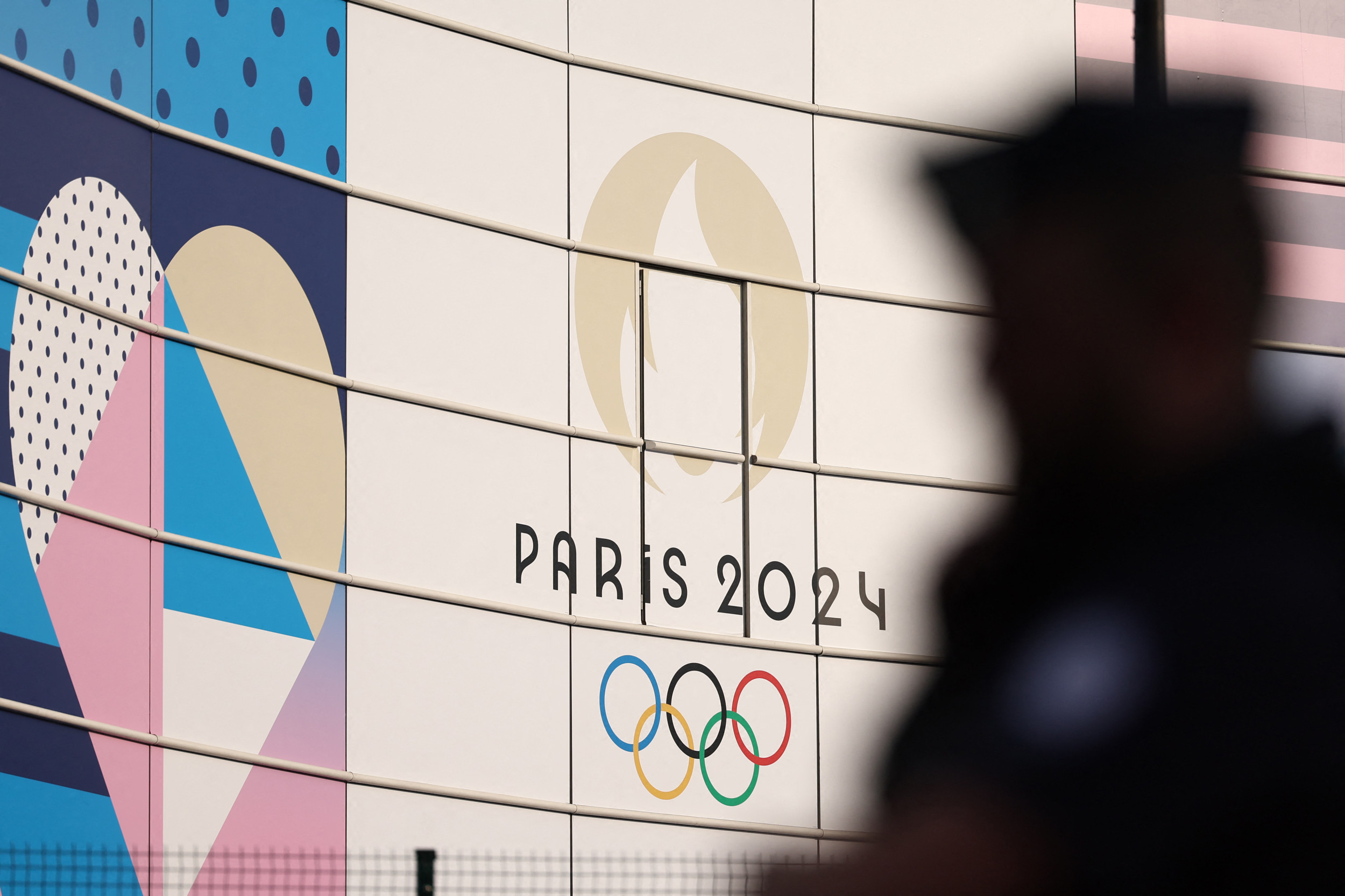As France prepares to host the Paris Olympic Games under heightened security, members and supporters of the Islamic State militant group (ISIS) have threatened to divert the spotlight to their deadly cause by wreaking havoc at the international gathering.
ISIS may have suffered a major blow in the collapse of its self-styled caliphate in Iraq and Syria five years ago at the hands of campaigns waged by local, regional and world powers, but the multinational group has remained active and has even expanded its control in parts of Africa and Asia outside of the Middle East.
The group’s largely Afghanistan-based Khorasan province, known as ISIS-K, ISKP or IS-K, has mounted an especially ambitious campaign to strike further abroad, claiming bloody attacks in Turkey, Iran and Russia this year alone.
Now, as European security agencies scramble to foil a growing number of militant plots that have emerged in recent months, ISIS-K is looking to reclaim the level of fear it struck into the heart of the continent during the height of ISIS’ rampage nearly a decade ago, the deadliest incident of which to occur in the West was the coordinated series of attacks that ravaged the French capital in November 2015, killing 131 people.
Claude Moniquet, a former intelligence agent of France’s Directorate-General for External Security who went on to found and head the European Strategic Intelligence and Security Center, called ISIS-K “the most dangerous” branch of the broader ISIS network. He argued it has “the means and the will to strike, even in a difficult context, with its leaders certainly intent on taking leadership of the entire movement.”
“As our observation work and intelligence sources indicate,” Moniquet told Newsweek, “the threat has returned to a level comparable to that which preceded the 2015 attacks.”
FRANCK FIFE/AFP/Getty Images
The War on Sports
ISIS has eagerly broadcast its intention to strike at sporting events being hosted by France and other European nations in both official and unofficial publications widely proliferated in multiple languages throughout online jihadi circles.
In recent months, much of this messaging pointed to potential plots surrounding the UEFA Champions League and Euro 2024 regional soccer tournaments, as Newsweek previously reported. One such image published in May by the Voice of Khurasan magazine of ISIS-K’s Al-Azaim Foundation portrayed an armed militant in a stadium alongside the warning, “Where do you want? Then score the last goal!” and the names of German cities hosting matches.
Paris and the upcoming Olympic Games have also been named as a target, as was the case with an image circulated last month by the unofficial Al-Adiyat Media Foundation depicting a remote-control drone carrying a labeled “gift” toward the Eiffel Tower along with the words, “Lone wolves’ Olympics have begun with the will of Allah.”
Days later, the same pro-ISIS outlet published another stylized photo showing an armed militant in front of a burning Eiffel Tower accompanied by the warning: “We will retaliate by the Will of Allah.”
Given the absence of any successful operations during the recent UEFA tournaments and other top sporting events held this year, a lead researcher from the Middle East Media Research Institute’s (MEMRI) Jihad and Terrorism Threat Monitor (JTTM) told Newsweek that “the Olympic Games represent one last event that jihadis may exploit to carry out attacks, where otherwise they would miss a huge opportunity.”
“Threats to sports venues is an emerging threat here at JTTM,” the researcher, who wished to remain anonymous due to security concerns, said. “It has gained much attention and reactions among [ISIS] supporters online and boosted the outreach of efforts to potential recruits in Western countries.”
“Targeting sports spaces hosting thousands makes it that much more attractive,” the researcher added.
While the threat stream has intensified today, targeting sporting events is not a new tactic for ISIS. Prior to this year’s uptick in appeals for attacks, ISIS-K reportedly plotted to strike at the 2022 FIFA World Cup in Qatar, one of many Muslim nations whose leaders the group has deemed to be “apostates.”
Even earlier, the November 2015 attacks in Paris began with suicide bombings at the Stade de France after three ISIS attackers failed to gain entry to an international soccer match between the French and German national teams. Just minutes later, additional cells of gunmen and suicide bombers commenced their assault on crowded city streets and a concert being held at the Bataclan theater.
ISIS-K’s Al-Azaim Foundation has since urged its followers this year to “recreate the glory of the Paris 2015 raid.”

FRANCK FIFE/AFP/Getty Images
The French Dilemma
Those attacks marked the deadliest of their kind during peacetime in France, which has proved to be a favorite target among European nations by militant groups. Months prior to the ISIS massacre, Al-Qaeda was thrust back into international notoriety after its Arabian Peninsula branch claimed the fatal attack against the offices of French satirical newspaper Charlie Hebdo in response to the publication of disparaging images of the Islamic Prophet Muhammad.
“Such attacks are often attributed to the country’s secular domestic policies, which jihadis perceive to be hostile to Islam,” the JTTM researcher said. “France is also home to a significant number of radical Islamists and the data supports that they could take these goals to the next level and carry out attacks.”
In fact, as the researcher pointed out, it is widely suspected that a number of operatives behind ISIS-K’s flashy media campaign are likely residing in the West, with some potentially being ISIS recruits that managed to return home before the collapse of their claimed caliphate. France has been ranked among the top countries of origin of identified ISIS fighters, while other supporters of the group are believed to have long operated from abroad, creating sophisticated media that has been resurrected today in the form of ISIS-K’s current campaign.
Yet France’s struggle with Islamist militant groups dates back even further, with the 1990s proving to be an especially tumultuous decade as the nation suffered the bloody spillover of the civil war taking place across the Mediterranean in Algeria. The insurgent Armed Islamic Group twice bombed French metro systems, killing hundreds, hijacked an airliner and plotted to strike at the 1998 FIFA World Cup as well.
Moniquet, too, pointed to France’s steadfast commitment to secularism as well as “integration problems” that have pushed a segment of immigrants and citizens of foreign origin toward radicalization as being among the factors that have frequently placed the country in the crosshairs of jihadis.
Other conditions highlighted were France’s colonial ties to countries where Islamists have risen up and its history of interventions against jihadis abroad. France has actively participated in operations in Afghanistan, Iraq, Syria and the African Sahel, where ISIS affiliates have been especially active in the years since the 2011 France-led NATO military campaign in Libya helped rebels oust longtime leader Muammar el-Qaddafi, plunging the region into chaos, much as the 2003 U.S.-led Iraq invasion did in the Middle East.
Meanwhile, one lesser-known issue in France that exacerbates the challenge, according to Moniquet, is “a serious problem in hospital psychiatry.” He argued that an overwhelmed system has led to the premature release of patients suffering from psychological disorders associated with a number of attacks that have otherwise been tied to ideological or religious fervor.
“The context of the Olympic Games, with its hyper-mediatization, the massive presence of law enforcement agencies that can be perceived as a threat in a delirious context, and the restrictions placed in certain areas on freedom of movement and other security constraints, can trigger or aggravate delirious phases in patients,” Moniquet said.
And while he asserted that France “has almost unique tools at its disposal to combat terrorism” with enhanced judicial mechanisms, police assets and intelligence tools, he also warned that the threats were growing at a greater rate than could be adequately addressed.
“Some 20,000 people are on intelligence files concerning terrorist radicalization, and around 5,000 are considered to be at the ‘top end of the spectrum’, i.e. likely to carry out an act,” Moniquet said. “However, our resources do not allow us to fully monitor (interception and electronic surveillance + physical surveillance) more than 500 people simultaneously.”
Newsweek has reached out to the French Embassy to the U.S. for comment.
France has already counted some recent successes in the battle against militant plots. In the wake of one of the deadliest attacks in Russia’s modern history claimed by ISIS-K against Crocus City Hall outside of Moscow in March, French President Emmanuel Macron revealed that the same group had made “several” attempts to conduct attacks on French soil, only to have been thwarted by authorities.
In May, the French Interior Ministry announced that the arrest of an 18-year-old individual of Chechen origin suspected of plotting an “Islamist-inspired attack” marked the “first foiled attack against the Olympic Games.”
Contacted by Newsweek, a spokesperson for the International Olympic Committee (IOC) stated that security of the Paris Olympic Games “is the responsibility of the local authorities,” as was “always” the case.
“They have informed the IOC that they have been working for a couple of years under the assumption that the highest security measures will be required,” the spokesperson said. ”As is usual practice, there is also very close international cooperation.”
“Based on this and the regular reports the IOC receives from them,” the spokesperson added, “we have full confidence in the French authorities and their strong collaboration with their international partners.”

Getty Images
A World on Fire
There are also events far beyond France’s borders viewed as fueling the threat posed by ISIS and its sympathizers. Among them is the ongoing war between Israel and the Palestinian Hamas movement in the Gaza Strip, where scenes of death and destruction have riled jihadi sympathizers across the globe.
The conflict was referenced directly in the latest Voice of Khurasan issue, published earlier this month. The article assigned blame to both sides of war, accusing Hamas, which is opposed to ISIS, of having “enabled the massacre of our brothers and sisters in the Gaza Strip by the Zio-Crusader ‘kuffar’ of the ‘United States of Israel.'”
In the midst of the polarizing conflict, Moniquet argued that “today’s jihadists groups see us as an ally of Israel.” France has supplied the country with arms and munitions for use in its campaign in Gaza, where Moniquet said “the accumulation of deaths is exploited by jihadist propaganda to incite people to take action.”
Another ongoing war within Europe itself has also led to setbacks in the global fight against Islamist militants as France and other Western powers have lost potentially valuable contacts with Russia’s intelligence agencies as a result of its war in Ukraine.
“Today’s antagonistic relationship with Russia also plays a role,” Moniquet said. “All communication is cut off with Moscow’s services. After recent threats and the attack on Crocus City Hall, our services approached Moscow for information on ISIS-K, but Moscow never replied, even though we know that the FSB and SVR have extensive documentation on ISIS-K networks and sympathizers in Europe.”
The same issue, he argued, applied to the strained relationship between France and Syria, a Russian and Iranian ally whose government France backed ultimately unsuccessful efforts to overthrow amid a civil war that helped sow the seeds of the initial rise of ISIS.
Both Russia and the U.S.-led coalition of which France is a member waged campaigns against ISIS in Syria, but Moscow has been skeptical of cooperation with the West in the wake of its interventions in Iraq, Libya and Syria. NATO support for Ukraine has only further plunged this relationship to a depth not witnessed since the Cold War.
Following the Crocus City Hall attack, Russian authorities have alleged that the four Tajik nationals suspected of perpetrating the massacre claimed by ISIS-K had ties to Ukraine. The theory was rejected by most Western governments that support Kyiv, though the head of Germany’s Federal Office for the Protection of the Constitution stated last month that ISIS-K has used groups of refugees from Ukraine as a means of transporting operatives to Western Europe.
Lucas Webber, co-founder of Militant Wire and a researcher at the Soufan Center, spoke to how “deteriorating relations between France and Russia will hinder intelligence” surrounding the Paris Olympic Games.
“Tensions between the two are further fueled by France’s expanded involvement in Ukraine, Russia’s increased espionage activities inside France, and ongoing geopolitical influence competition in the Sahel, across Africa, and beyond,” Webber told Newsweek. “This is especially worrying given rising incidents of Russian nationals—Chechens in particular—being involved in plots and attacks inspired by the Islamic State and others more specifically tied to ISKP.”
“ISKP’s Central Asia contingent has been highly involved in IS’s external operations internationally as well as in a growing number of plots in Europe,” he added, “including a few in France.”

JULIEN DE ROSA/Pool/AFP/Getty Images
From Afghanistan to France
Wissam Nasr, a senior research fellow also at the Soufan Center and a journalist for France 24, told Newsweek that the combined efforts of the U.S., the former Afghan government it supported as well as the rival Taliban had long limited the reach of ISIS-K, but that the U.S. withdrawal from its 20-year war in Afghanistan and subsequent unrest had allowed the group “more liberty, without gaining back territorial control.”
Nasr, whose widely cited analysis on counterterrorism has drawn the attention of ISIS-K as evidenced by his quotes being featured in the latest Voice of Khurasan issue, emphasized that despite not owning any territory, the group “is not to be distinguished from IS core.”
“They are simply the affiliate that is the most ‘efficient’ in this regard,” he said, “meaning coordinating Russian speaking terrorists either from Central Asian republics or the Caucasus in order to conduct terrorist attacks abroad.”
With Afghanistan’s Taliban-led government struggling to rein in the threat of ISIS-K, the group has established intricate and extensive networks of financing, publication and recruitment. ISIS-K has also continued to actively exploit mistrust and ethnic tensions among neighboring nations such as Iran, Pakistan, Tajikistan, Uzbekistan and even China to further entrench its presence regardless of its lack of formal territory.
“The IS-K threat is to be taken very seriously since the group proved its capacity of mobilize attackers on numerous occasions,” Nasr said, noting the especially deadly attacks that killed 94 people in Iran and 145 in Russia as “the most spectacular” examples of the group’s capabilities.
Now that the group has successfully broadened its reach, Webber, for his part, stated that “the Olympics is the type of high-profile target ISKP wants to inaugurate its militant campaign against Europe and the West.”
Uncommon Knowledge
Newsweek is committed to challenging conventional wisdom and finding connections in the search for common ground.
Newsweek is committed to challenging conventional wisdom and finding connections in the search for common ground.

















Discussion about this post